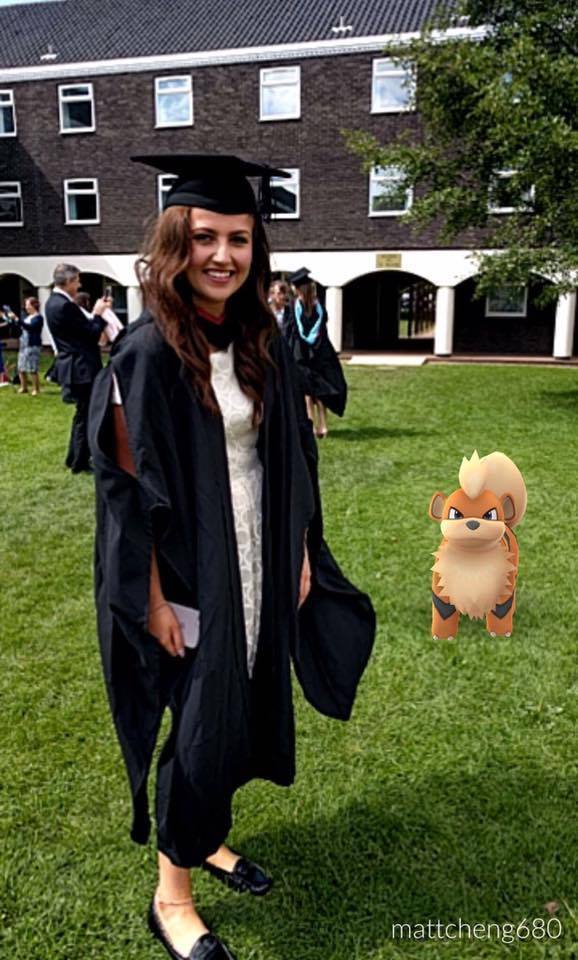Pokémon Go has swept all before it in the past week or so including on university campuses. EAB has a brief report suggesting there have been some positive benefits:
Derek Hennen, a Ph.D. student in entomology at Virginia Polytechnic Institute and State University, who credits the Pokémon card game for sparking his interest in biology and eventual field of study, says this new game is a good thing so far. People who hang around inside are getting outdoors and exploring campus.
“Students are really walking around campus a lot more,” says Samantha Jackson, a coordinator for academic-advising services at the University of Central Florida(UCF). “I feel like they’re ironically becoming more aware of things that are on campus because they have to walk to these different PokéStops.”
A bit more walking and awareness of campus features are perhaps fairly modest outcomes for a game but I suspect delivering learning wasn’t Nintendo’s primary aim here.
However, there are already plenty of universities joining in the Pokémon Go fun and there are plenty of ways for campuses to get involved as this blog post attests. From mapping your campus Pokestops and gyms to getting alumni involved and investing in lures (I know, crazy huh?), there are many ways for universities to play.

Business games have been around for many years in one form or another. However, there are companies looking to develop university level game-based learning as this report, on a spinout from Texas A&M University, notes:
Triseum has grown to over 30 staff, incorporating former Texas A&M University students, professors and leading experts in game development from around the country. It was important to Thomas that Triseum’s team be built, in an interdisciplinary fashion, to support all facets of curriculum interaction by students while maintaining and exceeding Game-Based Learning (GBL) expectations from students and teachers.
Through their partnership with the LIVE lab at Texas A&M University, Triseum is able to develop and test game designs and prototypes prior to production. Experts, from across the university, are engaged with Triseum to ensure games adhere to rigorous scientific standards as well as the latest research prior to game production. Additionally, students and instructors are tightly integrated into the design, development and testing processes ensuring the final product has been thoroughly vetted by the very user groups Triseum aims to serve.
“We are very proud to have laid a foundation and company culture built on rigorous curriculum, and innovative, bleeding-edge digital technology,” said André Thomas, CEO of Triseum recently profiled in The Huffington Post. “This combination is enabling us to expand course subjects and grade levels throughout educational systems around the world.”
“Game-based learning can serve as the missing link between curriculum objectives and student expectations,” said Thomas. “Education, as an industry, is better served when academic rigor presents itself through experiences and technologies students naturally gravitate to.”
The first set of games focus on Art History. The ARTé: Maecenas game teaches the interconnectedness of local and international economies, in Renaissance Italy, and how those economies influenced art and art patronage:
ARTé: Mecenas gives players a unique perspective on the Italian Renaissance of the 15th to 16th centuries. For example, taking the role of a member of the merchant/banking Medici family, one of the most influential families of the time, student(s) learn to balance relationships with powerful city-states, merchant factions, and the Catholic Church to build and maintain a financial empire. In the process, they play a pivotal role in the creation of famous artworks, monuments, and institutions of the Renaissance. By following the historical footsteps of the Medici family, students level up to the status of “Mecenas,” an influential patron of the arts, and experience the political, social, and economic factors that shaped the era.
All sounds terribly worthy and there must be something to it but it is not clear that it is the kind of educational paradigm shift the game developers claim.

Steve Benford, Professor of Computer Science at the The University of Nottingham has offered an academic perspective on matters:
So Pokemon Go is probably just the beginning. It’s a relatively simple and friendly game – in concept anyway – that is driving interest and already creating debate. How will we cope with darker and more challenging games? Location based Grand Theft Auto anyone? Or thousands of people descending on Whitehall to hunt down spies? Or what if such a game involves kidnapping people (oh – that one’s actually been done at least a couple of times already)?
We’re in for an interesting ride. Time to dust off and re-read some of those academic studies from a decade ago perhaps?
Meanwhile, back in Pokémon land, there are already some concerns about the impact of the game:
…the game has created a bit of a safety issue on-campus and off. On Saturday, someone phoned the University of Wisconsin at Madison because a group of cyclists were weaving through traffic with their heads in their phones. The caller’s theory: Pokémon Go.
Players have also been targets of crime. On Tuesday, three people on the University of Maryland College Park campus were robbed while playing the game.
At UCF, students wander campus into the early morning playing, says Courtney Gilmartin, assistant director and public-information officer for campus police. “I talked to a student on Friday who said he was here until 3 a.m.,” she says.
However, there are others suggesting it could be the ideal way for new students to find their way around campus. Maybe. Maps are also an option.
Anyway, safe gaming students! And let’s look forward to the academic studies on Pokémon Go. But if anyone asks me about the nearest PokéStops I shall ignore them.












